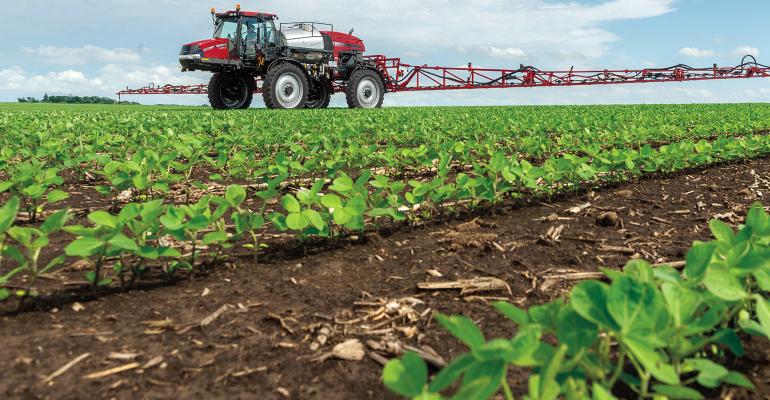
Agricultural News
Cornell University Studies Reveals Farmers' War on Weeds Taking a Toll on Soil's Beneficial Bacteria
Wed, 27 Sep 2017 11:40:08 CDT
 As farmers battle in their above-ground war on weeds, they may inadvertently create underground casualties - unintentionally attacking the beneficial bacteria that help crops guard against enemy fungus, according to Cornell University research.
As farmers battle in their above-ground war on weeds, they may inadvertently create underground casualties - unintentionally attacking the beneficial bacteria that help crops guard against enemy fungus, according to Cornell University research.
Specifically, Cornell researchers found negative consequences of the weed-killing herbicide glyphosate on Pseudomonas, a soil-friendly bacteria.
"Beneficial Pseudomonas in the soil can help crops thrive. They can produce plant-stimulating hormones to promote plant growth and antifungals to defeat problematic fungi - such as Pythium and Fusarium - found in agricultural soil, but previous studies reported that the abundance of beneficial bacteria decreased when the herbicide glyphosate seeps underground," said Ludmilla Aristilde, assistant professor of biological and environmental engineering. "Our study seeks to understand why this happens."
Soil bacteria require their proteins - composed of amino acids - and their metabolism to support cellular growth and the production of important metabolites to sustain their underground fight. But glyphosate applied to crops can drain into the soil and disrupt the molecular factories in the bacterial cells in some species, interfering with their metabolic and amino acid machinery.
The new findings show that glyphosate does not target the amino acid production and metabolic gadgetry equally among the Pseudomonas species. For example, when Pseudomonas protegens, a bacteria used as a biocontrol agent for cereal crops, and Pseudomonas fluorescens, used as a fungus biocontrol for fruit trees, were exposed to varying glyphosate concentrations, the researchers noted no ill effects. However, in two species of Pseudomonas putida, used in soil fungus control for corn and other crops, the bacteria had notably stunted growth, said Aristilde, who is a faculty fellow at Cornell's Atkinson Center for a Sustainable Future.
"Thus, if a farmer is using Pseudomonas fluorescens as a biocontrol, then it is probably okay to use glyphosate," Aristilde said. "But if the farmer uses Pseudomonas putida to control the fungus in the soil, then glyphosate is more likely to prevent the bacteria from doing its job."
The study offers molecular details for why glyphosate adverse effects on Pseudomonas are species-specific. "That's actually good news because - as a society - we will likely not stop using herbicide completely," said Aristilde. "If that is the case, farmers need to know which beneficial soil biocontrol they're using can be susceptible. If they're using a strain that is susceptible and conflicting with their herbicide application, then it is a problem. That's the bottom line."
"Glyphosate-Induced Specific and Widespread Perturbations in the Metabolome of Soil Pseudomonas Species" was published in Frontiers of Environmental Science. The research was funded by the U.S. Department of Agriculture's National Institute of Food and Agriculture; the National Science Foundation; and the Academic Venture Fund at Cornell's Atkinson Center for a Sustainable Future.
Source - Cornell University
WebReadyTM Powered by WireReady® NSI
Top Agricultural News
More Headlines...





